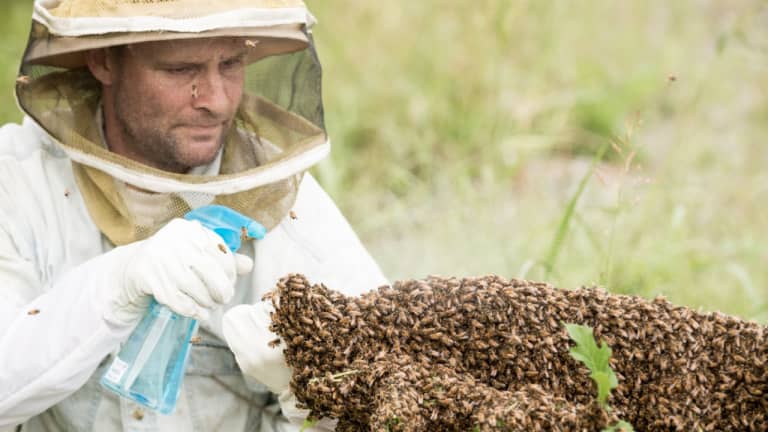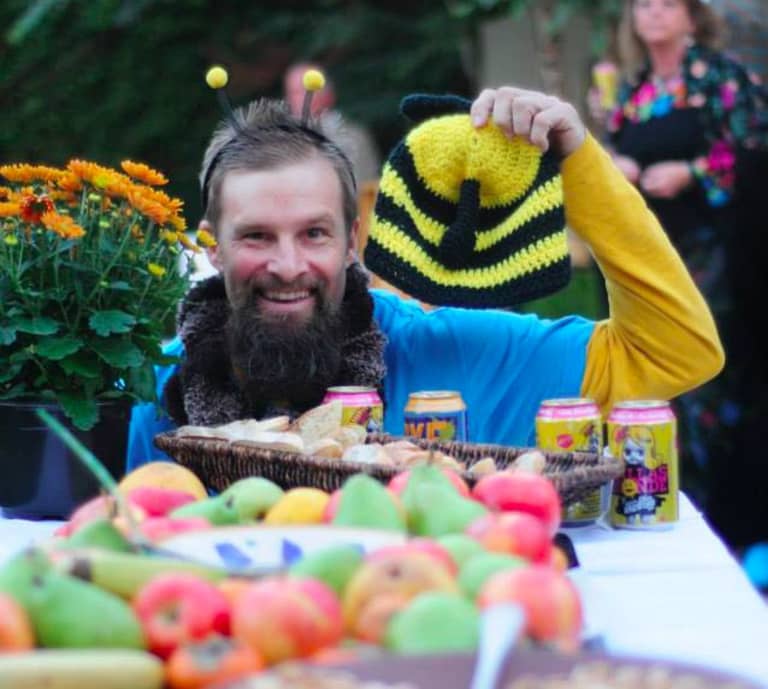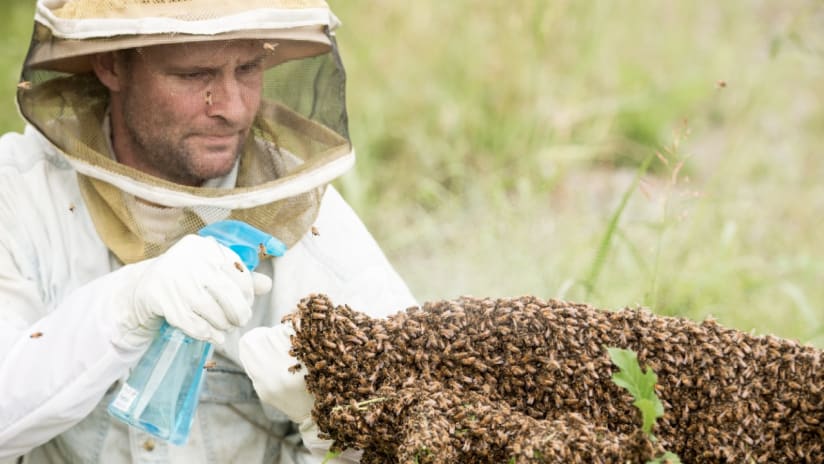The first 25 years of Brandon Pollard’s life revolved around soccer.
Family trips were built around youth showcase events as the Richmond, Virginia native grew up, and he became a regular on US youth national teams as he built a solid college career at the University of Virginia, winning three national championships and taking part in a U-20 World Cup, a Pan American Games and even the 1996 Summer Olympics. The Dallas Burn picked him third overall in the 1996 MLS college draft and he went on to make more than 100 appearances for the club known today as FC Dallas.
As mesmerizing as the beautiful game was, it’s been little more than a distant memory in his second quarter-century on earth.
“The soccer season isn't necessarily connected to the four seasons, if you know what I mean,” he deadpanned in a phone conversation with MLSsoccer.com this week.
“The sight of a honeybee means a whole heck of a lot more to me at the moment.”
Today Pollard is a farmer, beekeeper and educator, a passionate advocate for the buzzing pollinators who quietly power the agricultural industry but are suffering badly in the face of chronic environmental challenges like pesticides, disease and the mysterious but devastating Colony Collapse Disorder.

Pollard at work | Justin Clemons photography
“As much as one in every three bites we eat comes from honey bees, and so if honey bees are having a hard time, it's going to be rough on food production,” explained Pollard, a self-described “beevangelical” who has spent much of his post-soccer life maintaining hives across the Dallas/Fort Worth Metroplex, educating children and adults about their irreplaceable role in our world and cultivating “zip code honey,” the term for the hyper-local varieties that are sustainable, artisanal and deliciously fresh.
“The act of an insect visiting that flower creates that connection so it's just a very powerful, very beautiful, very essential thing in human life. So much of our food system is dependent on pollination. As a human species, we've been leaning on that relationship of pollination [throughout] our history.”
It’s not that he’s fallen out of love with his sport. He just happens to have been lucky enough to discover his true life’s work just as his pro playing career was cut short by injury, Dema Kovalenko’s rash tackle from behind breaking his leg in an MLS Cup Playoffs game between the Burn and Chicago Fire in 1999.
Pollard explored holistic medicine as he traveled the long, painful road to recovery, which sparked an awakening about humanity’s fragile, fraught relationship with the earth we both rely on and abuse. He says those lessons have been driven home during the coronavirus pandemic, as people around the world marvel at clean skies above Los Angeles, clear water in Venice’s canals and other startling demonstrations of the environmental destruction that shutdowns and stay-at-home directives have briefly paused.
“The air is clearing up and the water’s clearing up just because humans aren't doing what humans usually do. It's really easy for people to just say ‘I'm busy,’ but that's because they're afraid to slow down. And I think if we're being honest about that, then we're going to be a better species in the future,” said Pollard. “Because everybody is getting to know themselves a little bit better by slowing down, I think the bees are probably going to have a pretty good season this year.
“We're looking right now at exactly the whole problem with industrial agriculture. You got farmers just throwing thousands and thousands and thousands of pounds of food away – it's not going anywhere, so they've just turning it over back into the soil,” he added. “We need to diversify our pollinating portfolio and try to get people involved in smaller-scale farming.”

Pollard's passion as a "beevangelical" grew out of his healing process from a career-ending injury | Courtesy Texas Honeybee Guild
Pollard has worked on a range of projects in this space, from maintaining beehives in urban areas like skyscraper roofs to lobbying politicians to stop spraying pesticides — a response to the West Nile outbreak, but also a devastating scourge on bees. He’s connected with restaurants to enlist chefs in the locavore movement, helped a church called Owenwood Farm convert disused baseball diamonds into growing fields to bring organic crops to food deserts in blue-collar East Dallas and promotes community-supported agriculture and small-scale farming.
It’s not your typical post-MLS trajectory, that’s for sure.
“He's just the coolest guy, you know?” said New England Revolution TV commentator Brad Feldman, who befriended Pollard early in his broadcasting career and has kept in touch with him ever since. “He gave me his Olympic team uniform! And I was like, ‘Brandon, you earned this, you should have it.’ He's like, ‘No man, I'll never do anything with it. I got other pairs of shorts.’
“It was like a metaphor — he's out of the game. He just sort of ghosts in occasionally,” noted Feldman. “We need more of his approach to life in American soccer, I think. That's the injection that we need: a little bit less cookie-cutter, a little bit more out of the mold.”
Earth Day 2020 finds Pollard in transition; after more than two decades in north Texas he’s preparing to return to Virginia, moving on from the end of his marriage and the decoupling from shared beekeeping projects that entailed. He does catch an occasional game, like when he met up with Feldman at a Revs-D.C. United game last year that left him marveling at Audi Field’s atmosphere compared to the old days.
“It's still a beautiful game and I still have a passion for it,” he said. “I believe that you can choose to do any one thing, any one practice, any one passion, and learn everything from that one thing. And soccer taught me a lot. It's taught me a lot about myself. It's taught me a lot about the world.”
Though he’s not tending any hives at the moment, he’s tending crops of garlic, potatoes, squash, radishes and carrots as they sprout from the rich Texas soil. And he plans to keep it that way for the rest of his life.
“Anything, really, that I can do that’s connected with the cycles of Mother Nature,” he said, “is what feeds my soul.”













